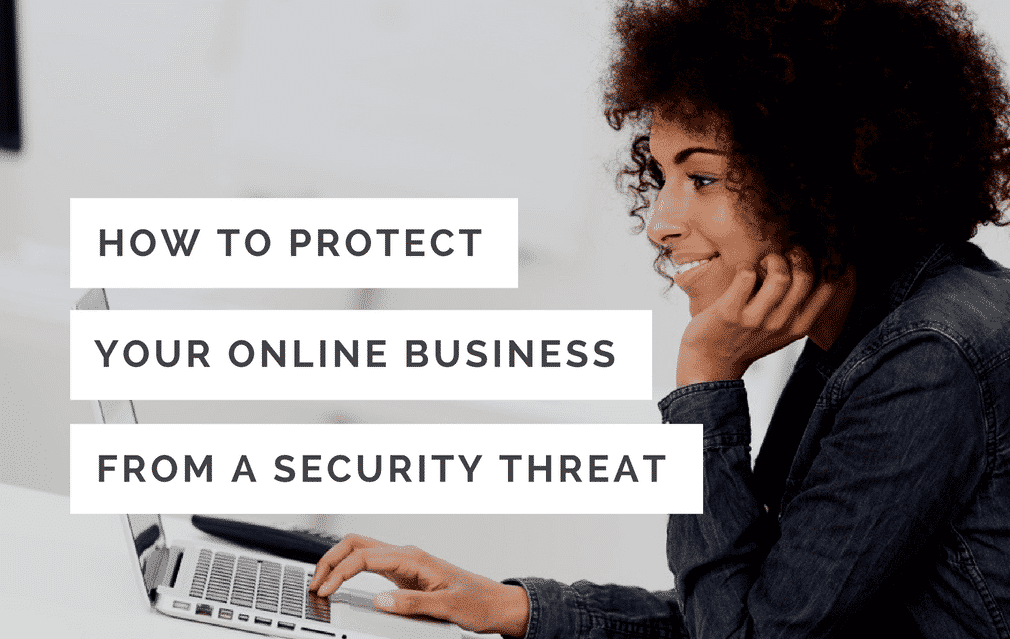Most businesses are migrating towards storing all of their data digitally, turning cybersecurity into an ever increasing concern. Online businesses, meanwhile, already handle most of their data digitally. All of which makes it exceptionally important that business owners start implementing safe cybersecurity measures.

Large conglomerates aren’t hackers’ main targets anymore. Small to medium businesses make up approximately 58% of malware attack victims, with most of the data breaches occurring in the US.
The aim here isn’t complete safety from any possible attack – nothing will be able to guarantee that. Rather than focusing on not being attacked, try to make the business as small a target as possible. For the most part, hackers don’t put in the effort to target one specific place. Instead, they take a ‘one hook, many fishes’ approach. They use one method of entry on as many businesses as possible and see who they get. Staying ahead of the curve will mean not getting caught.
These are some of the things business owners should do to keep their servers and data safe:
1. Beware of Malware
Not taking any steps to block malware is akin to putting a big bull’s eye on your business. Making it hard for hackers to get into any vital business assets is what will keep them away.
Business owners should look into getting a reliable firewall, good antivirus software, and setting up email encryption software.
A proper security measure should be set up to ensure everything is secure in your online business.
2. Adopt Safe Password Management
Passwords are meant to keep data safely locked away. But unfortunately, they’re also one of the easiest things for a hacker to get hold of if people aren’t careful.
So it’s crucial that passwords are protected at all costs by following password safety protocols. Applying strong and random passwords is a fundamental basis to start from. However, it’s not enough. Passwords often get stolen because people can’t remember them, so they save them on a browser or write them down. Secure password managers are one of the best solutions to that issue.
3. Have Clear Employee Policies
Human error is one of the leading causes of data breaches and malware attacks. Email is still the most popular method of attack, both via infected downloads and social engineering.
Usually, small businesses are easy targets in this regard because there’s no IT support, leaving employees to their own devices. Although, employees can’t be held accountable for mistakes if they’re not educated on the pitfalls of cyber attacks. Thus, business owners should set up strong guidelines to help employees learn about online safety.
This policy statement can include things like:
- Which applications and sites are prohibited.
- The difference between safe and risky online behavior.
- Safe password management.
- What shouldn’t be shared on social media?
- The types of online behavior are allowed on mobile devices.
4. Keep Software Updated
No piece of software stays secure forever. Hackers are constantly looking for vulnerabilities and security holes to exploit. Which is why software developers also work very hard to create updates that fix any known security flaws.
Users who don’t allow software updates are putting themselves at risk by sticking to outdated software with known vulnerabilities.
So it’s always advised to hit the update button whenever you need to. That’s how you protect your online business.
5. Find a Reputable VPN Provider
Adding an extra layer of security can be the difference between becoming a victim and staying safe (https://nordvpn.com/risk-free-vpn/). VPN software helps keep business information safe by encrypting all outgoing and incoming data. The encryption process scrambles data, making it unintelligible. Only someone with the corresponding key can unscramble that data again.
Also Read: Difference Between SeedBox vs VPN? Explained Clearly
Pro tip: Avoid free VPN software when looking for a VPN service. Free VPN services aren’t safe because they’re offering a valuable service that people are willing to pay for. As the saying goes – if it’s free, then the user is the product. Free VPN providers often sell their users’ data to the highest bidder. Besides, they are unreliable and often have lousy customer support.
6. Make Regular Backups of Important Data
Ransomware attacks are on the rise and have cost businesses millions of dollars in losses in the past year alone. Make backups of important files and data, and store them in a safe place. This will prevent ransomware attackers from getting the upper hand and spare everyone a lot of frustration.
Even in case if you are losing your data, make sure that you properly made plans to recover it using some recovery software.
Also Read: Stellar Phoenix QuickBooks Recovery – Best QWB Corrupted File Recoverer
Check out the below video of Online Security discussion between Austin Berglas, Morgan Mayhem, and Jim Stickley published by VICE NEWS on YouTube:
The Bottom Line
Following the best practices in business, cyber security can help any small to medium business form a solid defense plan against any form of outside attack. It’s important to do this sooner rather than later as hackers are notoriously persistent. Periodic implementation of necessary security measures based on your business type is encouraged to strengthen the security.
The only way to stay safe is to keep ahead of the curve. Which is done by applying cybersecurity protocols and tools that will make it that much harder for them to get in. The funds that you are going to spend in securing your business will help you save the huge wealth of your company. So it’s always advised to spend good enough for purchasing the necessary tools to safeguard your business data.